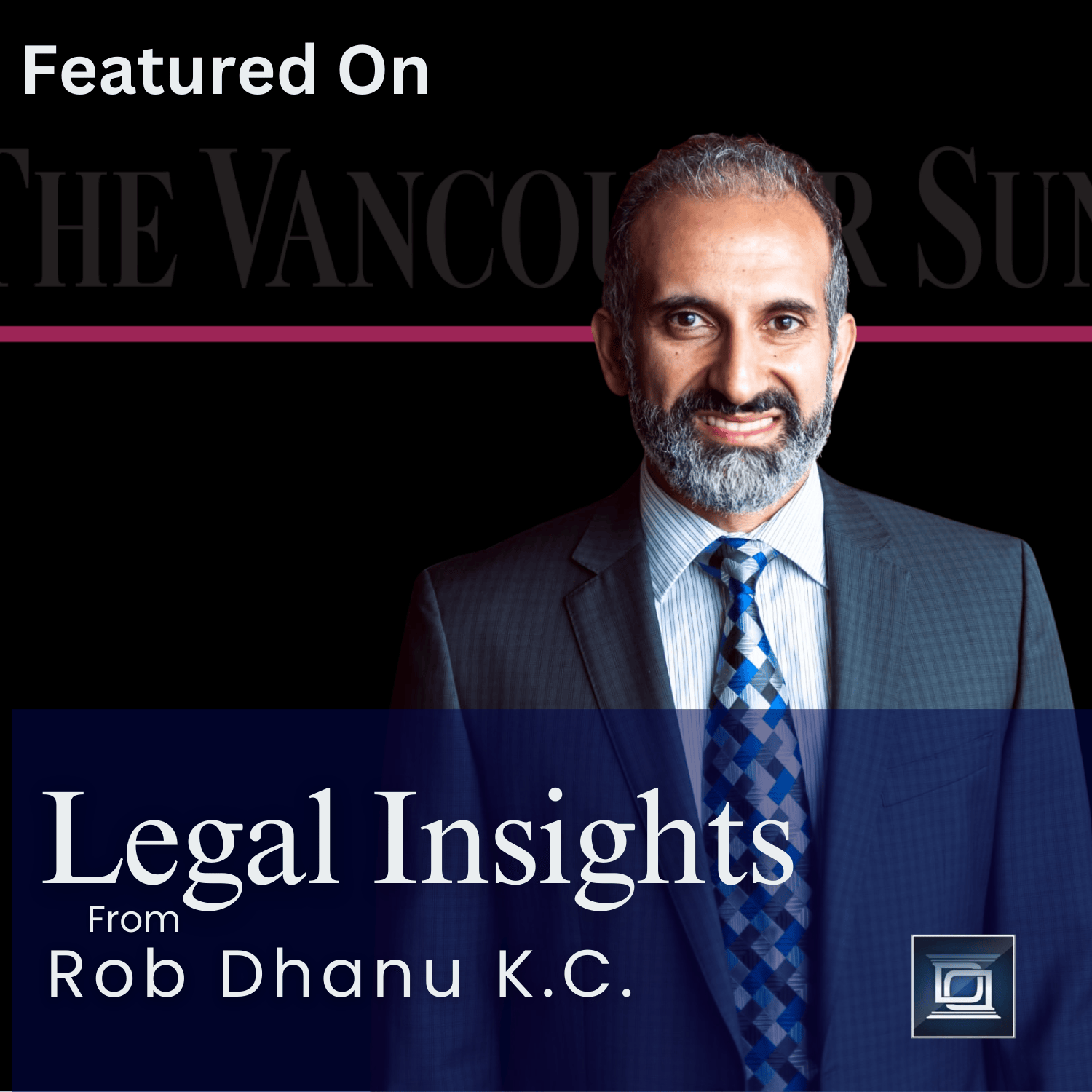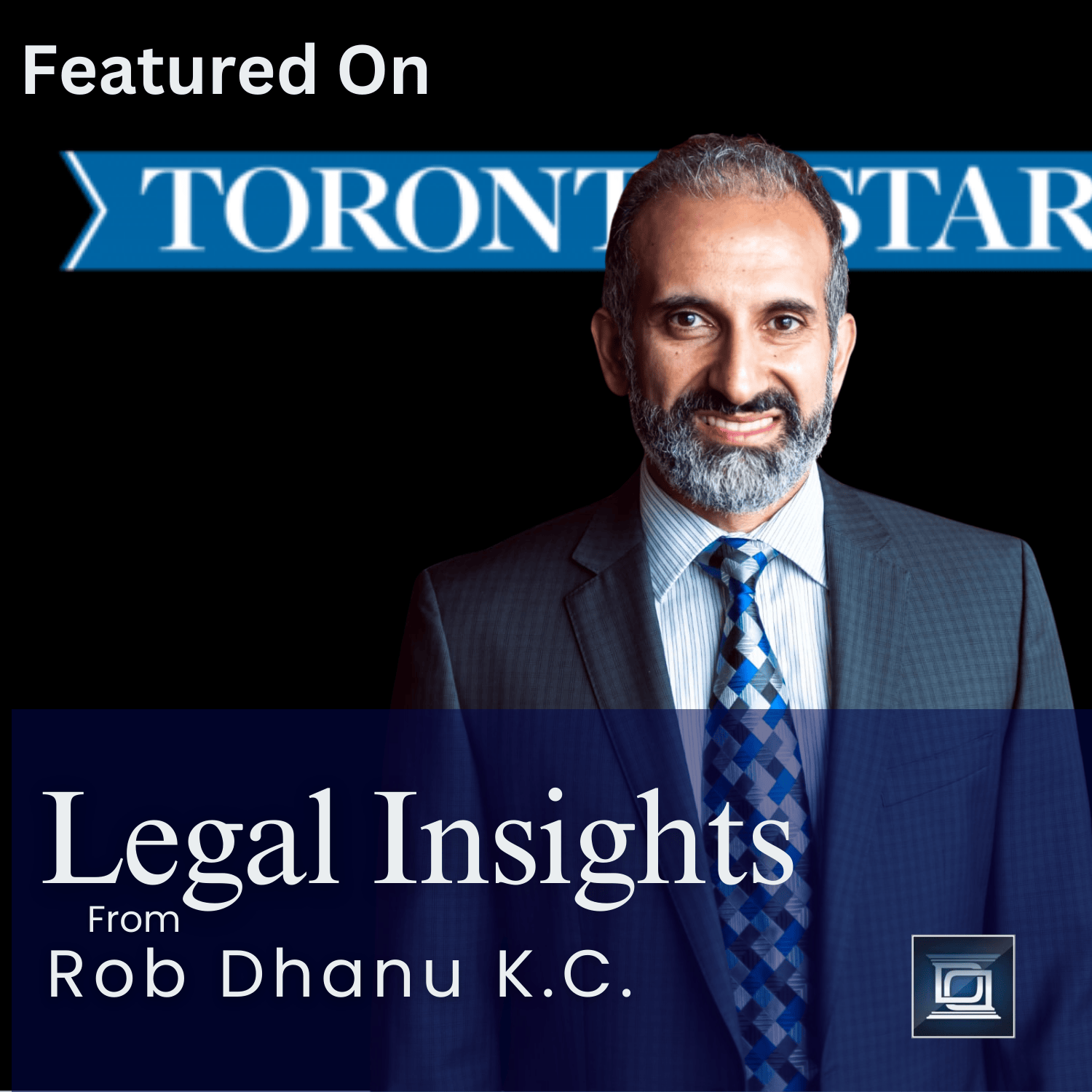Rob Dhanu KC Reveals What PM Mark Carney Isn’t Telling You
Prime Minister Mark Carney is promising to get “tough on crime.” His government’s new bail reform bill pledges to keep violent and repeat offenders off the streets by flipping the burden of proof — forcing the accused to show why they deserve bail.
But will it actually make communities safer?
In a recent interview on Global News Radio, Rob Dhanu KC — former federal Crown prosecutor, criminal defence lawyer, and co-founder of Dhanu Dhaliwal Law Group — broke down the proposed legislation and why, despite the headlines, it may do little to address the real causes of crime and disorder across British Columbia.
HOST (Jas):
Hey, welcome back to the show. Prime Minister Mark Carney is taking a hard turn on crime. His government’s new bail-reform bill aims to keep violent and repeat offenders off the streets by flipping the burden of proof — forcing the accused to show why they deserve bail.
Take a listen to Prime Minister Carney earlier today:
PRIME MINISTER CARNEY (clip):
“We’re fixing ineffective policies from the past and building a stronger, safer future with tough new laws, big new resources, and practical solutions. We will bring in tougher sentences for violent and repeat offenders and invest in thousands of frontline officers to combat crime in all of its forms.”
HOST (Jas):
That was Prime Minister Carney speaking earlier today. As he said, the legislation also restores tougher sentencing, limits conditional releases for sexual offenders, and allows consecutive sentences for serious crimes. Supporters are calling it overdue; critics warn it could test the Charter and strain an already overloaded justice system.
Our next guest knows the justice system well: Rob Dhanu, former federal Crown prosecutor, criminal defence lawyer, King’s Counsel (KC), and co-founder of the Dhanu Dhaliwal Law Group. Rob, thanks so much for your time today.
ROB DHANU:
It’s a pleasure to be here, Jas.
HOST (Jas):
I thought of you right away this morning as I was listening to the Prime Minister. Let’s start with the basics. How significant is this proposed bail-reform bill overall?
ROB DHANU:
We have to look at the context. There’s a lot of pressure on all levels of government to “do something” about the increased disorder on our streets. Politically, doing nothing would be suicidal. The real question is: once this legislation passes, will we see a difference on our streets? Looking at the actual reforms, my answer is no.
There are four major pillars in what Prime Minister Carney is proposing.
1) Expanded reverse-onus bail
This would mean the accused has to show why they should be released, rather than the Crown showing why they should be detained. The issue is we already have reverse-onus provisions — for organized crime, terrorism, certain firearm offences, repeat violent offenders, and most recently repeat domestic-violence offenders. Those individuals already have to justify release. Judges already consider criminal records — looking back ten years isn’t new. So I don’t see much that’s actually new here.
HOST (Jas):
Let me stop you there because that’s the main selling point. The bill shifts the burden to the accused. You’re saying that’s already on the books — this doesn’t meaningfully raise the bar or give judges and Crowns greater clarity?
ROB DHANU:
They may add a few more reverse-onus categories, but judges already deal with reverse onus for many major crimes. Adding a few more won’t change outcomes on the ground in a significant way.
HOST (Jas):
So despite the fanfare, you don’t expect this to make a real difference?
ROB DHANU:
Right. This feels like political sleight of hand. Addressing the root causes costs money and requires political will — hard to do in an election cycle. It’s easier to make the courts the scapegoat.
2) Consecutive sentences
We already have those. Where offences occur at different times or are of different seriousness, judges are supposed to impose separate, consecutive sentences rather than letting them run together. This is a re-wrap of existing law.
3) Restricting conditional sentence orders (CSOs) for certain sexual offences
The government says this reverses past changes. But CSOs were re-opened because the Supreme Court of Canada said it was unconstitutional to categorically bar them. The Court is clear: sexual offences are extremely serious and jail is typical, except in exceptional circumstances. In those rare cases, judges must be allowed to weigh all factors. If this new restriction is too rigid, it will face Charter scrutiny and could fall again.
4) Harsher penalties for organized retail theft
“Higher maximum sentences” usually matter only in the most extreme cases. Most sentences fall well below the max, so raising the ceiling won’t move the needle much day-to-day.
HOST (Jas):
So, bottom line: you don’t expect these changes to have much impact. If you were advising the Prime Minister, what would actually help?
ROB DHANU:
Politically, I’d tell him to do exactly this. But in terms of effectiveness: money and resources. He’s referenced more funding — that can help. For example, $1.8 billion over four years to the RCMP could improve complex domestic and transnational investigations. Beyond police, we need mental-health, addiction, and housing resources — those are the root causes of much of the disorder.
HOST (Jas):
So many of the real solutions land at the provincial and local levels — housing, mental health, addictions?
ROB DHANU:
They do. Courts can always be improved, but if bail laws didn’t change pre- and post-pandemic, and disorder increased during the pandemic period, it suggests bail law isn’t the driver. The drivers are mental-health pressures, the opioid crisis, recessionary pressures, unemployment, and the housing crisis. Those are hard problems. It’s much easier to say “we changed the laws.”
HOST (Jas):
Will this affect Crown workload and decisions at bail?
ROB DHANU:
There will be directives to apply any new provisions, but in the trenches, judges, Crowns, and defence already assess an offender’s history and whether a proposed release plan sufficiently manages risk. That practical analysis won’t change much.
HOST (Jas):
We’ve already seen a supportive press release from Vancouver Mayor Ken Sim, and no doubt other officials will weigh in. Where do we go from here?
ROB DHANU:
The public deserves safety and accountability, absolutely. But we should look past red herrings and demand that politicians address root causes. In a democracy with a Charter, you can only push criminal law so far without infringing rights. Real, sustained change requires bipartisan commitment and investment in the upstream issues — not just headline-friendly tweaks.
HOST (Jas):
Fair to say the public wants change, especially in downtown cores across many cities post-COVID — Vancouver, Toronto, Seattle, L.A., San Francisco, even London?
ROB DHANU:
Yes. People want safe communities. But if we conflate real issues with political theatre, we waste time and resources and put communities at risk. Demand accountability — but make sure it’s directed at what will actually work.
HOST (Jas):
Rob, as always, thank you for your time.
ROB DHANU:
My pleasure.
HOST (Jas):
That’s Rob Dhanu, former federal Crown prosecutor, criminal defence lawyer, KC, and co-founder of the Dhanu Dhaliwal Law Group.
Call-In Segment
HOST (Jas):
Phone lines are open — 604-331-2899. Let’s go to Stephen in Burnaby. Hi, Stephen.
CALLER (Stephen, Burnaby):
Hi, Jas. Thanks for taking my call. There was a time when police would nab a perpetrator and we’d all say, “Great — they’re going behind bars.” Now I’ve lost confidence. It feels like an hour later they’re back out committing the same crimes. That must be demoralizing for police who keep arresting the same people.
HOST (Jas):
You raise a good point — it’s often the same prolific offenders moving from store to store. If some of the proposed changes actually bite, I’d welcome it. We’ll see how it plays out in the months and years ahead. Everyone wants change. We don’t want a revolving-door justice system. Think about this morning’s shooting on Scott Road in Surrey — what message are we sending if there are no real consequences?
I hope Mr. Dhanu is wrong in his skepticism — and I say that with respect for his experience. I get that these are deeper, societal issues. But the public wants action, and so do police. Vancouver Mayor Ken Sim just put out a statement supporting the Prime Minister’s promise of tougher bail laws. Hopefully we’re heading in the right direction; Canadians need to have faith in the justice system.
While Ottawa’s new bail reforms may sound tough, Mr. Dhanu’s analysis cuts through the politics: real safety comes from investing in mental health, addiction recovery, housing, and frontline resources — not just rewriting laws that already exist.
At Dhanu Dhaliwal Law Group, our team of experienced criminal lawyers understands both sides of the justice system — from prosecution to defence. If you or someone you know is facing criminal charges in British Columbia, speak with our team to protect your rights and get experienced, strategic representation.
Call 604-746-3330 or visit ddlaw.ca to book a consultation with our criminal defence team.




